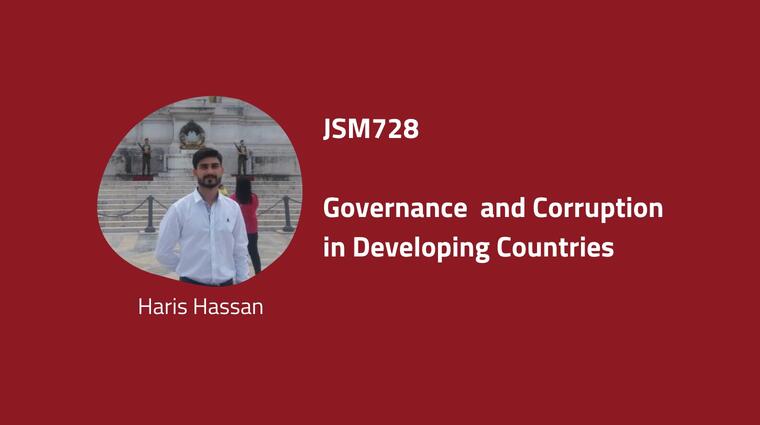Governance and Corruption in Developing Countries - JSM728

Governance and Corruption in Developing Countries - JSM728
Governance and Corruption in Developing Countries is a graduate course is lead by Haris Hassan and improves the theoretical knowledge of students on governance, corruption, and its social implications in developed as well as the developing world. As corruption has been analysed with respect to its economic consequences in terms of economic growth and foreign direct investment but to analyse corruption with respect to human rights perspective has not much been focused on. This course aims to learn about corruption impacts on human rights and well as human development, for instance, bad governance affects health and education which are the main factors of human development as well as basic human rights. However, a relationship does exist between government and corruption in the form of public spending in the social sector of an economy. Therefore, the central perspective will be put on the concept of “human rights with the lens of human development” and their practical consequences in different public & social policy areas, such as health policy, education, public spending, accountability, and criteria of good governance. These policies will be analyzed in the context of institutional perspective in developing countries mainly, as well as developed countries. The attention will be also put on the comparison between developed and developing countries in terms of good governance.
Haris Hassan is a PhD fellow at Charles University at Department of Public and Social Policy. He holds Mphil degree in International Development Studies (Iqra University, Islamabad, Pakistan) and 2nd master degree in International Finance and Economics (University of Macerata, Macerata, Italy). Moreover, he works on social implications of governance and corruption in developing countries as part of his PhD research.

